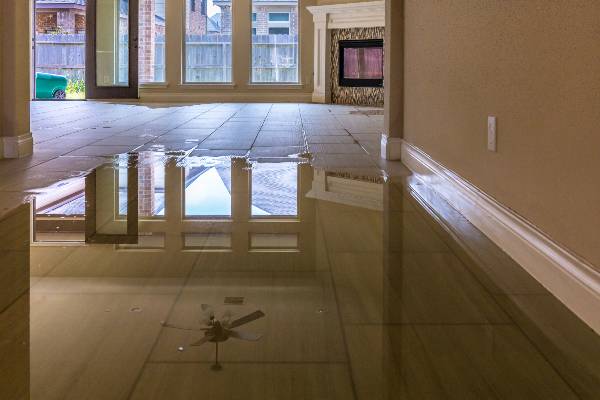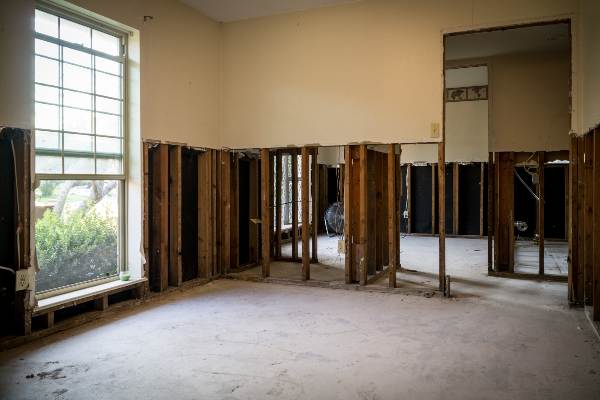Water damage is a homeowner's worst fear. Since many homeowners get their auto insurance from the same place as their homeowner's insurance, they trust the company. It's shocking how few of them know what their homeowner's insurance covers. Insurance companies typically don't tell homeowners what they are entitled to in case things go wrong. When they make an insurance claim, the company can then tell them that they aren't covered. The World Bank notes that almost one and a half billion people face flooding yearly. In some parts of the US, flooding is a constant concern, and flood damage is one of the most common insurance claims that companies have to deal with. Unfortunately, it can be difficult to get insurance cover for a water damage claim.
Making your insurance payments on time will ensure that your home is always covered by the policy. The insurance term should be discussed with your agent to ensure that you understand what you're paying for. You don't want to realize after flooding that you don't have coverage for water damage or that you lack flood coverage specifically. Lack of maintenance may also be a factor in whether the insurance company covers the damage. You are expected to pay for regular maintenance for your home to ensure that there is a lower chance of anything breaking. Poor maintenance might allow an insurance company to deny your claim.

Some homeowners insurance policies cover water damage. Coverage for water damage may include flooding, but this doesn't apply to all policies. Ideally, the homeowner would know their insurance policy and what they are allowed to claim for. However, on some occasions, the insurance agent might not have represented what a homeowner can and cannot ask for in a water damage claim. Different homeowners policies cover different eventualities. In this article, we'll walk you through each step of getting your insurance to cover your damage from flooding, and why retaining a lawyer can be a smart move.
Depending on what type of flooding you're dealing with stopping the water from coming into your home would be the first step. Occasionally, you'll need to turn off the main supply to your home if it's a burst pipe. Things are a bit trickier if you are dealing with flooding from outside, coming in through some entryway. Plugging the leak is a possible option, but sometimes that's just not possible. If you have flood insurance, it may cover any damages you get from the influx of water. In any case, leaving it for an extended period is likely to lead to gradual damage to your home and its interior.
You may need to institute temporary repairs to stem the flow of water. If your damage is due to a water leak or broken pipes you might not be able to make temporary repairs, but you can turn off your water supply to stem the influx of water. Heavy rain leading to flooding is a completely different matter entirely.
Does the homeowner's insurance cover water damage? One of the best ways to determine that would be to check the insurance policy itself. A standard policy typically covers things like fire and theft. However, some insurance companies offer flood damage coverage under a separate policy. Standard home insurance policies in some areas include certain types of water damage. You can claim for water damage if you have a policy that covers it. To know if your policy cover water damage, you may need to read up on it or contact your agent.
There are stipulations in what these policies will cover if you claim for water damage. If the damage comes from an internal pipe, the insurance company will cover it. However, if the water comes from the outside of the house, you may need to look at flooding protection instead. The type of water damage determines whether the insurance company will cover it. The rule-of-thumb for if your homeowner's insurance cover water damage is if the damage was internal and sudden.
One of the best ways to figure out if homeowners insurance covers water damage is if the water has ever touched the outside ground. If it hasn't you can claim for water damage and get paid for it. If it has, your homeowner's insurance is likely not going to cover those damages. Before you claim for water damage, ensure that the homeowners claim covers it.
Water damages can happen as gradual damage or sudden damage. Getting your water damage insurance claim filed is of the essence if you are to get a settlement in time to deal with your damages. You might feel strange calling up your insurance agent at a weird hour to report the damages, but you should. That's what they're there for. You can even ask if your homeowners insurance covers water damage.
Your insurance company will want to know the type of damage they're dealing with, so you should make a record of the damage as much as possible. If you have a dedicated insurance agent, you should utilize the service to inform the insurer of what's going on. The homeowner's insurance company is likely to start their own investigation to ensure that there is no incidence of insurance fraud, but this comes later.
You would need to call a drying and restoration company to deal with the damages as soon as possible. FEMA mentions that mold damage starts happening very soon after the flooding occurs. The growth of mold is exacerbated by dark, warm areas, like the inside of your house. Getting someone to deal with it quickly is of the utmost importance. Gradual damage to infrastructure occurs from water remaining in a location for a long period. A mold remediation company can help to deal with drying and restoring your house's interior to a safe situation.
Check for any immediate structural damage and if you spot any, leave the premises immediately, as the location is unsafe. Major flooding can bring all sorts of dangerous chemicals up from the groundwater or leach it from building materials. Staying in an inundated house with chemicals floating around could lead to gradual damage, so evacuating is the preferred method of dealing with it. The presence of mold spores can also cause shortness of breath and allergic reactions. Keeping an eye on the situation as it progresses will inform the homeowner if it's time to leave the house and head to a temporary residence.
If your homeowner's insurance cover water damage, they are likely to send over an insurance adjuster to help them get an idea of the extend of the gradual water damage and any sudden damage that might have happened. This helps the insurer determine the cost of repairs and what they're willing to offer in an insurance check. The adjuster may consider the extent of the damage and ask questions about the situation leading up to the incident. They'll also take pictures of the damage to show their employer.
You might be worried about if they'll deny your homeowner's insurance claim, but unless you explicitly caused the damage yourself, you'll be fine. Insurance is intended for accidents. If you have a flood insurance policy for extra coverage, you don't even have to worry about water coming in from the outside. If you caused the problem accidentally, you are still covered by your standard homeowner's policy. However, if the damage was due to someone else's involvement, the insurance company would want to know. For example, if a professional accidentally caused this damage, your provider would go after his insurer to subrogate.
Insurance settlements for a water leak insurance claim can take one of two methods. The Actual Cash Value (ACV) refers to the replacement cost of damaged items, minus their depreciation. On the other hand, replacement cost value refers to the original cost value when the item was brand new. Most homeowners insurance coverage deals with actual cash value since they don't want to reimburse a policyholder for the value of something that was new maybe a decade ago. Their cash value policies may vary, so asking the company for the details before you submit your homeowner's insurance claim might be prudent. Some replacement cost policies include additional payments, but only after you've proven you have used up the initial payment.
It may seem strange to have insurance companies pay part of your claim settlement and then follow up with another payment later down, but they have their reasons. Depending on the type of water damage, it may require more money to clean up, and the insurance company wants to know you're using that money for your recovery. Additionally, since you want to avoid gradual water damage, you want your home cleaned up in a reasonable period of time. All these factor into the extra costs you may have to meet to ensure that your home is livable again.
It's important to note that settlements from a standard homeowners insurance policy are typically made out to you and your mortgage lender. For you to access that cash, you'll need to submit the check to the mortgage company and get is endorsed by the loss draft department. While this may be a frustrating way to deal with insurance, it's a necessary part of informing the relevant authorities about the situation. The loss settlement will be recorded by the mortgage company in their records to reflect the situation. You may be required to fill out a proof of loss form to file with your mortgage provider as well.
Contracting services are a crucial part of restoring your building to its original state. Seeking out several contractors allows you to get estimates for repairs and restoration that you can use to determine the most cost-effective option. Small jobs might mean meeting with several dozen contractors to figure out the best price and the most reliable company to go with. In the case of a rebuild, you might need to stick with a single contractor that offers several services as part of their business model. So, for example, if your contractor offers you to do repairs as well as install Brazilian Hardwood floors as a part of the cost of their service, you get a deal.

Part of the claim process is ensuring that your insurer and your contractor are aligned. When you get your initial estimate, you can ask for an itemized report to help you explain to the insurer why your claim for water damage is costing them so much. You don't want to go over your coverage limits so choosing a contractor that can come up with a reasonable costing for your extensive water damage is crucial. Even so, depending on the kinds of water damage involved in the case, you may be facing a significant cost for repairs. An insurance company representative might need to recheck the figured that your contractor submits. You can't use your entire settlement on fixing frozen pipes, for example.
Your flood-related damages may be extensive. If your insurer is still not convinced of your claim, you may need to contact an independent insurance agent to verify the situation. Pictures you took before will help, allowing you to deal with claims coming from standing water and the initial damage that might have happened from floodwater. Since you're looking at permanent repairs you will want a contractor with a good reputation.
Water damage is no joke. The initial damage from rain coming into a house might end up becoming worse. Standing water can lead to long-term structural instability inside a house. Additional damage can also result from gradual leaks, which will increase the cost of permanent repairs. These problems are even more concerning when household chemicals are leached from the walls and floor. A claim for water damage should take these things into account. Getting your flood insurance policy or homeowners policy to pay for the damage might be a difficult task, but well worth the entire process.